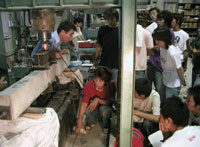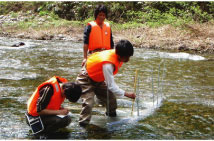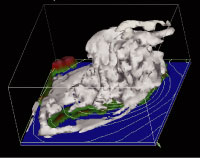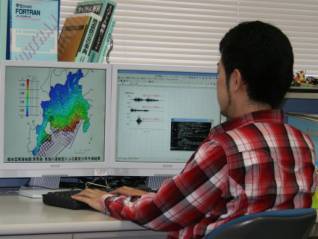Outline
[New! 2021] ADMISSION OF FOREIGN STUDENTS WITH JAPANESE GOVERNMENT SCHOLARSHIP TO THE FOREFRONT STUDIES PROGRAM ON GLOCAL CIVIL ENGINEERING LEADERS FOR CO-DEVELOPMENT OF ASIA AND JAPAN 2021 (Doctor of Engineering degree,Doctor of Environmental Studies degree)
The Graduate School of Engineering at Gifu University, as well as the Graduate School of Engineering and the Graduate School of Environmental
Studies at Nagoya University are accepting applications from foreign students who wish to pursue a doctoral degree in the field of Civil and Environmental Engineering. The "Forefront Studies Program on Glocal Civil Engineering Leaders for Co-development of Asia and Japan" will be started in 2021 as a cooperative program between Nagoya University and Gifu University. The course works and research supervision in this program are carried out in English. Five and three internationalstudents will be accepted to Nagoya University and Gifu University,respectively, with a scholarship granted by Japanese Government. We greatly appreciate if you can forward this letter to any departments of your university that may be related with Civil and Environmental Engineering. Here are highlights of this new program;
- Joint doctoral course program for Civil Engineering Leaders between Gifu and Nagoya Universities,
-
Only applicants not residing in Japan are eligible for application,
-
The selected applicants will join DC course from October, 2021,
-
The MEXT scholarship will be provided to the selected candidates,
-
The selection will be made by submitted documents and online interview,
-
Deadline for application is 29th, Jan, 2021, and the result will be informed in early March,
-
The program mainly focuses on students from ASEAN countries, but those who from 'priority countries' specified by MEXT may be accepted for the program.
For further information, please refer to our program website <http://www.civil.nagoya-u.ac.jp/forefront/index.html>, or send an inquiry to civil-kokusai@gifu-u.ac.jp.
 Civil Engineering contributes to the development of safe and comfortable life.
Civil Engineering contributes to the development of safe and comfortable life.
Civil engineering is a professional discipline that deals with the improvement of wide-ranging social infrastructure in our natural and physical living environment, including public utility works such as electric utility, gas utility, water utility, roads, railroads, and airports while meeting the responsibilities of sustaining a safe and comfortable social life. It is also a discipline that may be appropriately called "integrated engineering", because it deals with the control and prevention of natural disasters (such as earth quake, river flood and debris flow) , environmental conservation, and development of subsurface and ocean.
Department of Civil Engineering offers two main courses: (1) Environmental Studies Course in which students learn technologies for establishing local communities in harmony with nature and for promoting sustainable development; and (2) Disaster Reduction Studies Course in which students acquire various knowledge and technology dealing with natural disasters and disaster prevention.
An easy-to-understand explanation is available on the Japan Society of Civil Engineers. For more details please visit here.
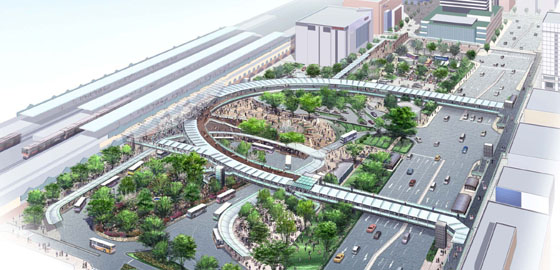
 Department of Civil Engineering advance distinctive research.
Department of Civil Engineering advance distinctive research.
Please click here for information regarding laboratories, faculty members and research outcomes.
|
|
|
|
|
|















